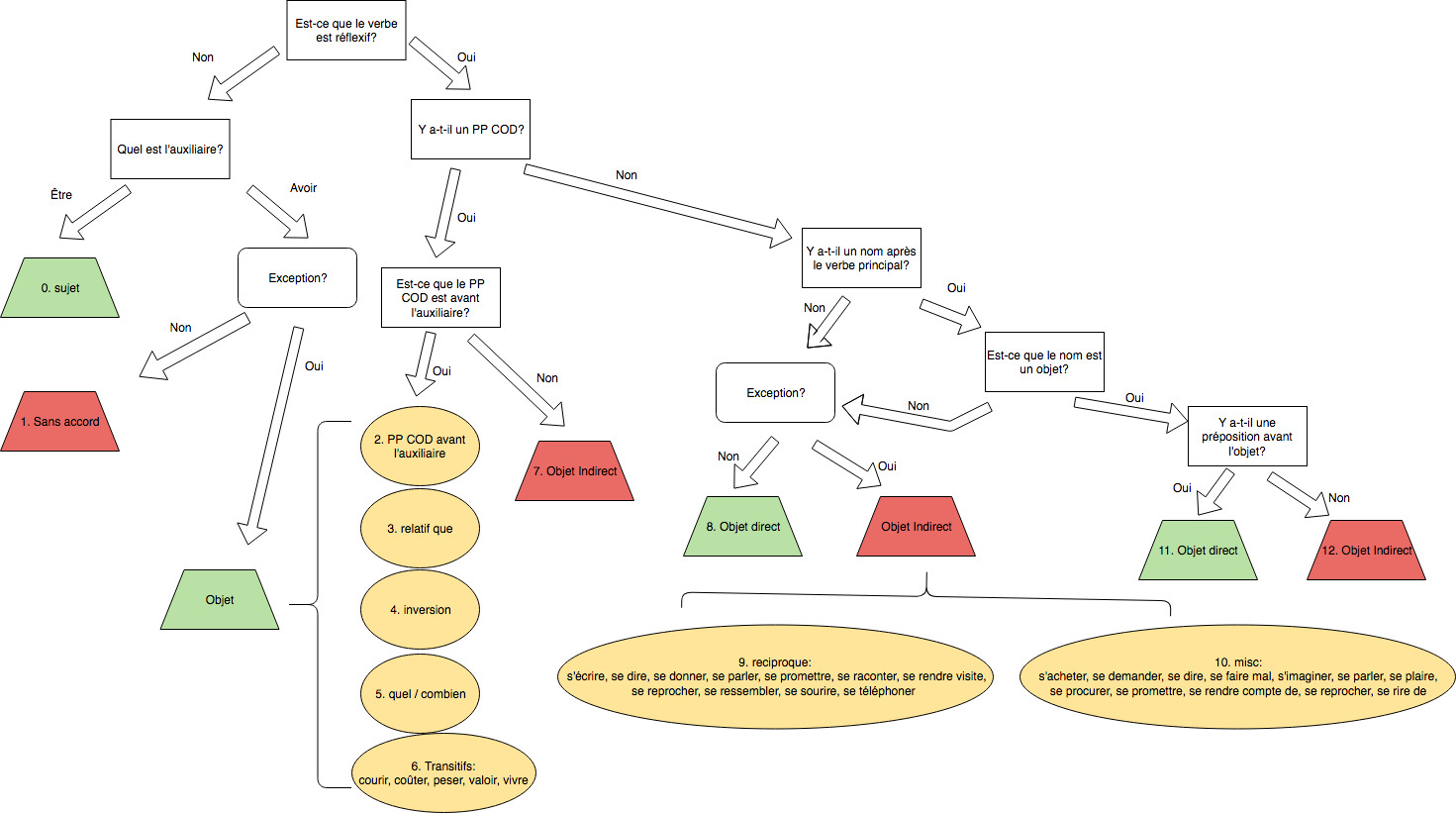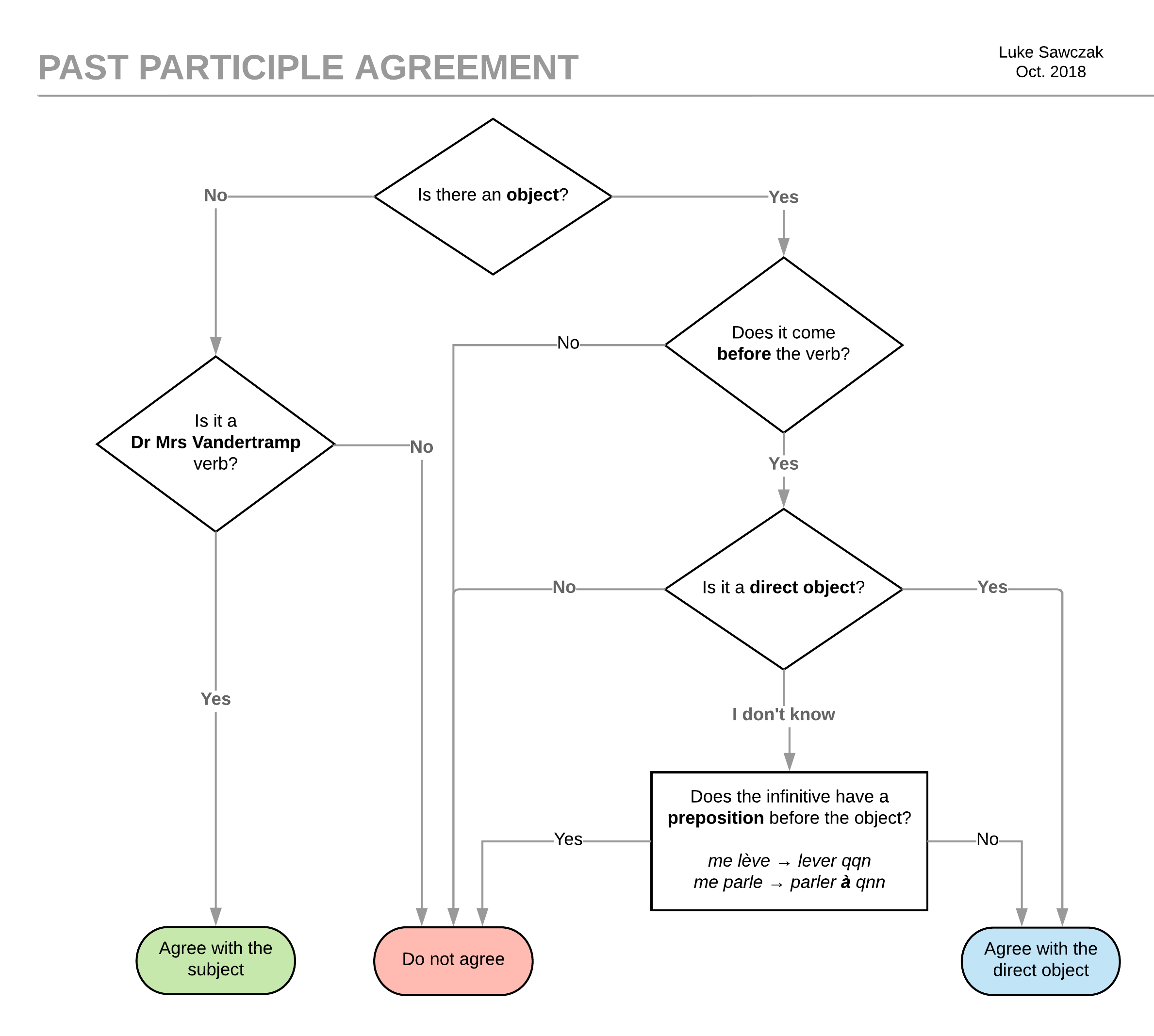I have some difficulties grokking this subject, after reading a lot here and other sites, I've tried to create a flow chart that summarizes all the different cases, so it can be used by French language students or even a computer program.
I'd like to get a feedback, and more specifically, my questions are:
- Is it correct? Are there any mistakes or inaccuracies?
- Is it complete? Are there any cases not covered here?
- How can it be simplified?
- Is it necessary to learn the verbs in (10) by heart? What exactly do they have in common?
Terminals are denoted by trapezes or ovals (for exceptions). My main source is http://www.leaflanguages.org/french-grammar-reflexive-verbs-passe-compose-past-tense/


